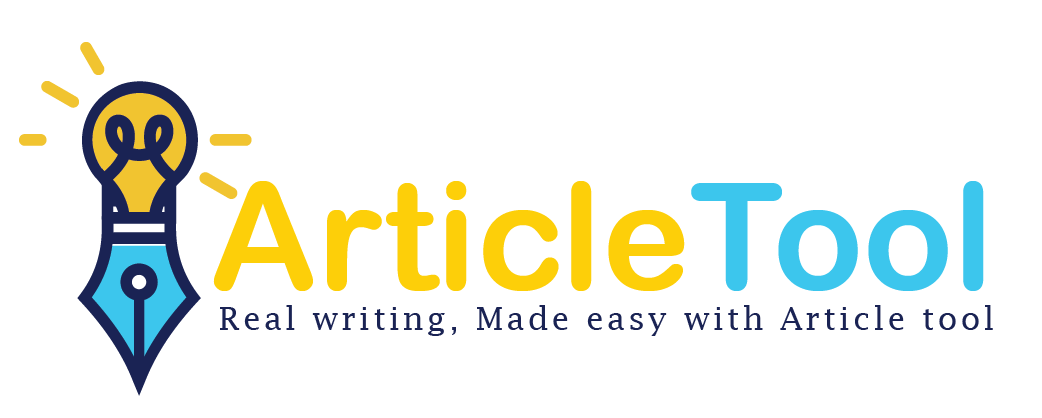Accidental Plagiarism

March 5, 2024
Accidental plagiarism may take several different forms and where one needs to recognize characteristics. One form of accidental plagiarism may be when one unknowingly uses paraphrasing or summarizing from someone else's ideas without giving recognition to the original source. This may be due to mere ignorance over proper citation techniques or ignorance of how vital it is to provide credit for someone else when using his or her work.
In addition to that, improper notetaking may be another cause of producing unintentional plagiarism. Researchers expose themselves to the possibility of claiming another person's work as their own whenever they do not document their sources correctly at the time of data collection. Accidental plagiarism also takes place when individuals make judgment errors regarding information they perceive as common and insignificant to the extent that they do not need attribution.
Accidental plagiarism could happen in a number of instances: sometimes it happens out of ignorance or misinterpretation of citation rules. This is one of those instances, where common knowledge would present information that the writer does not think needs citation. This would be followed by paraphrasing, where there might be an unintentional overlap in structure or wording within the original source as one works to rephrase an idea in his or her terms.
Another common situation is when collaborative projects or group assignments are done, and there is a failure to properly attribute sources, as contributors assume shared knowledge without necessarily recognizing the contribution of individuals.
Apart from that, inadvertent plagiarism also occurs in cases where one fails to give citations for presentation slides or visual content 'during any form of presentations.' This is when images, graphs, or charts are utilized without mentioning where the credit lies.
The two scenarios mainly bring into light the essence of awareness and education on matters of ethical writing as a way of reducing incidences of inadvertent plagiarism both in academic and professional spheres.
Strategies for Cultivating Academic Integrity
Academic integrity is fostered through general strategies that aim at developing good behavior and upholding codes of honesty in institutions. The educator is the most essential vehicle for the culture of integrity in which expectations are clearly stated; guidance on citation is given, and the emphasis is driven home on original thought. Student learning in education can be facilitated through workshops or tutorials or online modules in plagiarism awareness, citation style, and necessity for intellectual honesty.
Inclusion of academic ethics discussions within the curriculum allows the students to be aware of the after-effects of such degrading practices. Plagiarism checking during assessment may act not only as a preventive measure but also as an educational means for the students themselves.
Creating an atmosphere that would make them feel free enough to call for clarification in case of doubt regarding citation or academic ethics is helping in the all-around development of a community committed towards maintaining academic integrity.
The Unintended Tapestry: Defining Accidental Plagiarism
Accidental plagiarism, often viewed as a misstep rather than a deliberate act of deceit, occurs when individuals incorporate someone else's work, ideas, or intellectual property into their own without proper citation or attribution. The term "accidental" underscores the absence of intent to deceive, yet the consequences of unintentional plagiarism can be profound. At the heart of accidental plagiarism lies a lack of awareness, confusion about citation practices, or challenges in navigating the intricate landscape of academic writing. Using online Tools like Article Tool for Plagiarism check with similarity percentage and citations generator, can help you avoid such incidents.
Detecting and Addressing Accidental Plagiarism
At this point, it is where the use of technology becomes very proactive: It automatically scans and identifies potential accidental plagiarism incidents. Useful web tools like Article Tool will check the content against an enormous database and bring out similarities with any existing sources. Integrating these into your writing means that accidental plagiarism gets caught well prior to final submission.
Plagiarism is important. Workshops, training sessions, or online modules should be carried out that teach people how to cite correctly, paraphrase information, and give credit where it is due. By creating a culture of integrity and ethical writing, you will deter the roots of accidental plagiarism and make for better behavior in academic and professional writing.
Strategies for Avoiding Accidental Plagiarism
First, avoid accidental plagiarism by citing all sources extensively. Document every source carefully and follow the particular rules for the citation style you have chosen to use. Train yourself to take notes in a manner that clearly indicates what is your idea or invention and what is borrowed from someone else. Prepare a source list of the works you consult in your research.
Generally, you can paraphrase by rephrasing the idea in your own words but keeping the literal meaning of the phrase intact. Return to the source again and again as you write your recast version. Familiarize yourself with the nuances of citation style, so you can avoid making accidental mistakes. Check with plagiarism detection tools such as Article Tool if you have inadvertently borrowed from sources. This will raise your awareness and ensure integrity in academic and professional writing.
Impact on Academic Reputation
Plagiarism has the seriously disastrous effect of totally eroding the trust and credibility an individual has within educational contexts with regard to his or her academic reputation. Intentional or otherwise, plagiarism by students either way violates the base principle of academic integrity. These ramifications are not simply limited to the immediate academic repercussions but, instead, burrow deep into the student's standing within the academe.
A marred academic reputation results in the loss of confidence from peers and faculty. It may dampen student collaboration, which is, after all, real interactive learning. Spoilt relationships with mentors and recommenders put one's future academic and professional aspirations in jeopardy.
Original thought and ethical behavior are cardinal concerns for any academic institution; plagiarism, in that respect, is a serious violation of these values. Consequences of these effects, therefore, on academic reputation touch on current educational outcomes and future opportunities, and also on the individual's perceived integrity in the wider academic community.
Consequences of Accidental Plagiarism
Accidental plagiarism can have grave consequences in professional and academic circles. For students, it can result in serious consequences of lost credibility, grade deductions, and even academic penalties at places where originality and integrity are required. It only takes an unconscious situation wherein a student fails to present the source correctly or cite the reference accordingly for his or her academic reputation to go up in smoke, further hindering progress in academics.
Repeated cases may result in graver consequences, even to the extent of facing academic probation or expulsion from the institution. This is because educational institutions have strict policies that guard the integrity of their programs.
While in professional contexts, reputation loss may bring limitation of opportunities, or slower career development. This, of course, presumes that professionals are supposed to work creatively. To this end, suspicion of plagiarism leads to a question about one's trustworthiness and their ethical standards.
Not only reputation effects, but accidental plagiarism also exposes one to some more possible legal implications, especially in cases when a copyright is at issue. Benefits may also be legally deposited against professionals for copyright infringement cases, which may further lead to financial penalties and ensuing legal consequences.
In places where ethics are strictly followed, such as in the case of journalism or law, unplanned plagiarism may also lead to a loss of professional licenses, which will clearly put one's career in jeopardy. Consequently, one has to be conscious of not committing plagiarism by accident and follow the principles of ethics while writing to avoid possible missteps in academia and at work alike.
Conclusion
In this labyrinthine world of academic writing, where the quest for knowledge is embroiled with ethics, accidental plagiarism is like a formidable barrier. Its insidious nature comes out from unconsciousness or muddled understanding, and thus, such incidents need education, clear communication, and collective commitment to academic integrity to be minimized.
As both educational institutions and individuals strive to navigate through the ambiguities surrounding unintentional plagiarism, striking a delicate balance between awareness, honing skills, and nurturing originality can pave the path towards fostering an environment where accidental plagiarism is minimized; thus, allowing the genuine essence of intellectual pursuits to shine through brightly. Sign Up for a free trial with Article tool for Plagiarism check, citations generator Basic Keyword research and more.
Image by pikisuperstar on Freepik
